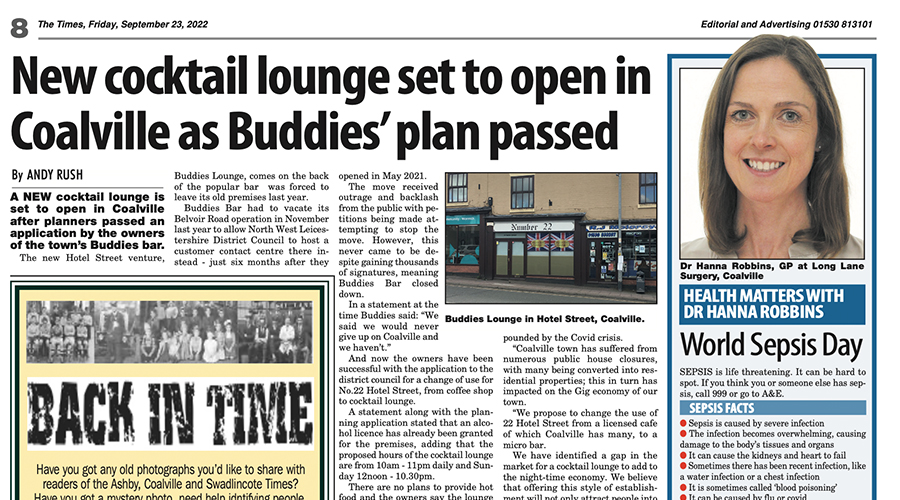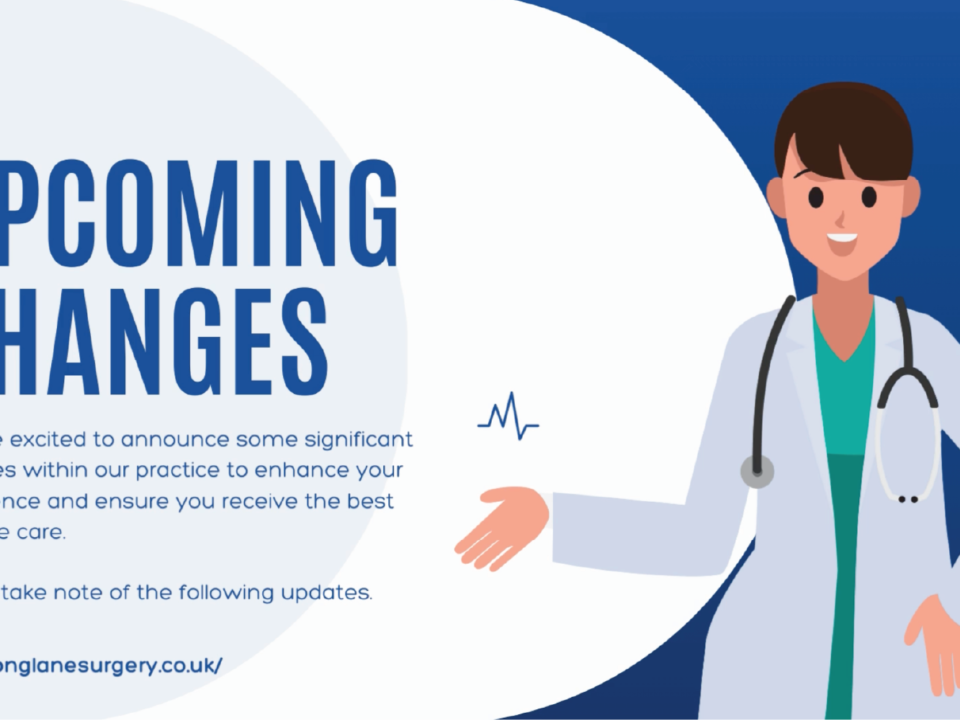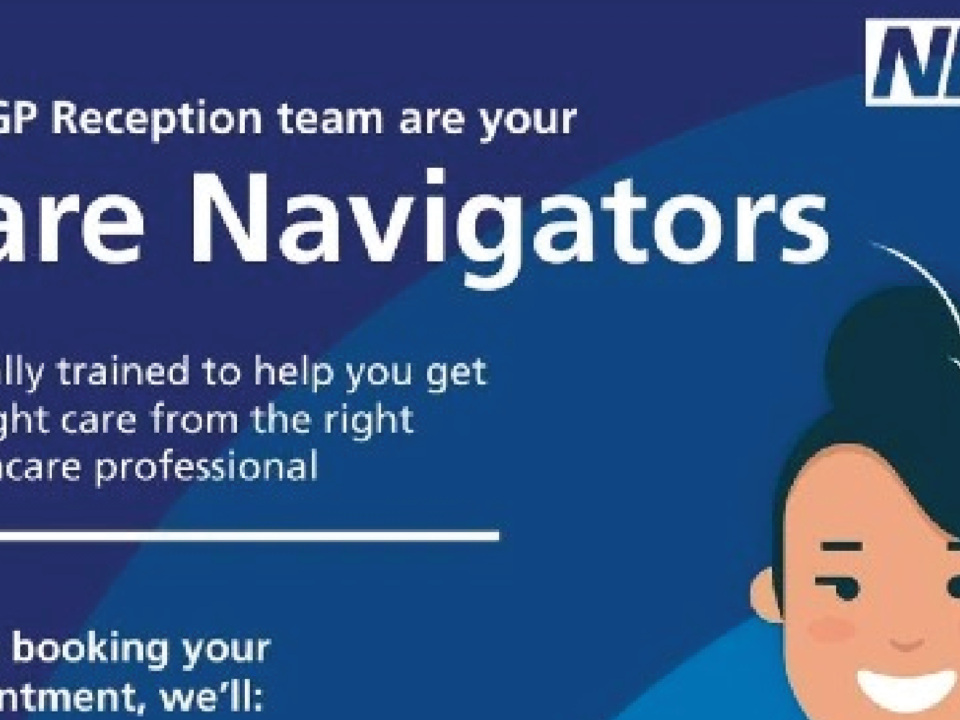
COVID | Booster Vaccinations
September 8, 2022
HEALTH MATTERS: Sober October
October 7, 2022Featured In: The Coalville Times, Friday, 23rd September 2022
HEALTH MATTERS WITH DR HANNA ROBBINS
World Sepsis Day
SEPSIS is life threatening. It can be hard to spot. If you think you or someone else has sep- sis, call 999 or go to A&E.
Sepsis Facts
● Sepsis is caused by severe infection
● The infection becomes overwhelming, causing damage to the body’s tissues and organs
● It can cause the kidneys and heart to fail
● Sometimes there has been a recent infection, like a water infection or a chest infection
● It is sometimes called ‘blood poisoning’
● It can be caused by flu or covid
● Sometimes there are no signs of infection
● Sepsis is an emergency – things change quickly ● Getting urgent medical care can belife-saving ● It can be treated when it is caught early
Who gets Sepsis?
Anyone can get sepsis, but some people have a higher risk:
● Babies under 1 year
● Adults over 75 years
● People with a weakened immune system
● People who take steroids
● People with diabetes
● People on chemotherapy
● People with underlying health problems
● People who have recently been in hospital
● People who have recently had a serious illness
● Women who have recently given birth or had a miscarriage
What are the signs?
● Slurred speech
● Confusion
● Extreme shivering
● Extreme muscle pain
● Very high fever in someone who is very unwell
● Passing no urine (wee) all day
● Severe breathlessness
● Skin mottled/ blotchy or an odd colour
Signs in babies
● Floppy
● Much more tired than usual
● Off feeds
● Hands and feet cold even in a warm room
● Cry might sound weak or different
Sepsis is more difficult to spot in
● People with dementia
● People with learning difficulties
● People who have difficulty communicating
● Babies and young children
What can I do to prevent Sepsis?
Have your vaccinations
● Take your children for vaccinations
● Take elderly relatives and neighbours for vaccinations
● Wash your hands
● Keep wounds clean and covered
● Follow the instruction if you have been given antibiotics

Dr Hanna Robbins
Senior GP at Long Lane Surgery




